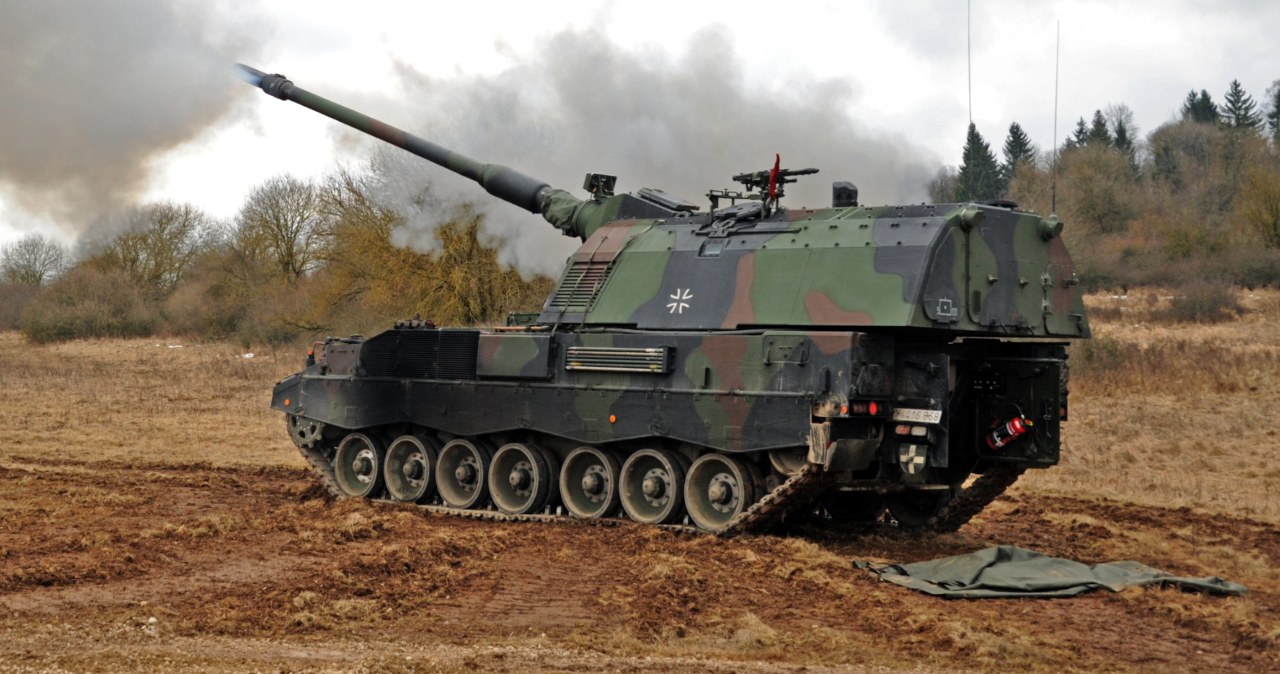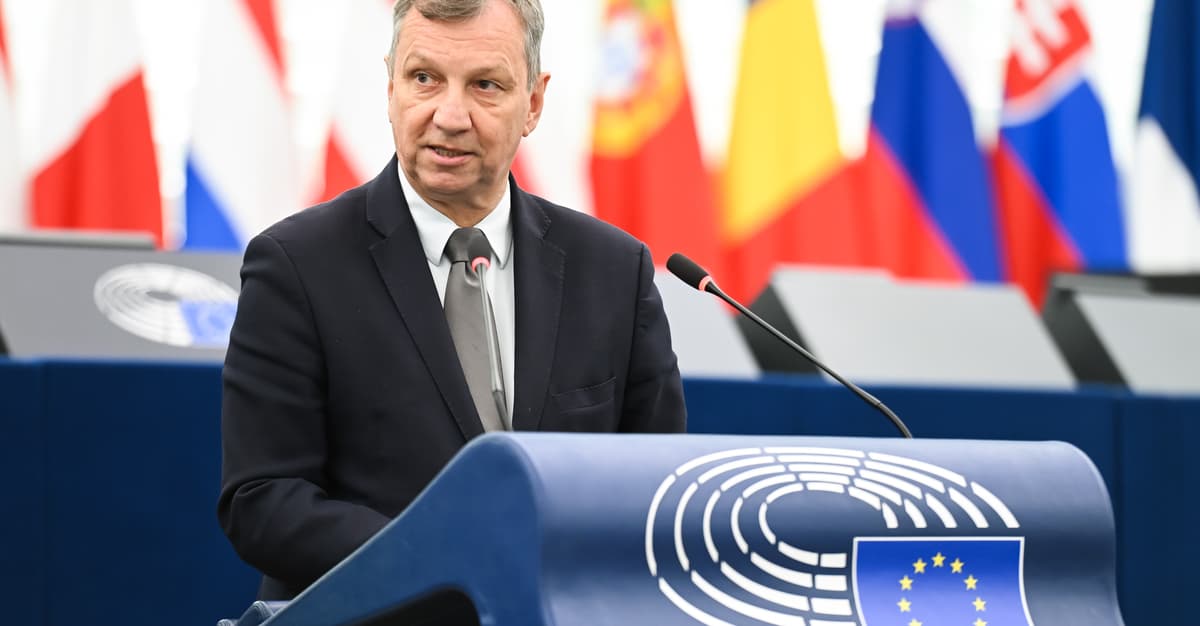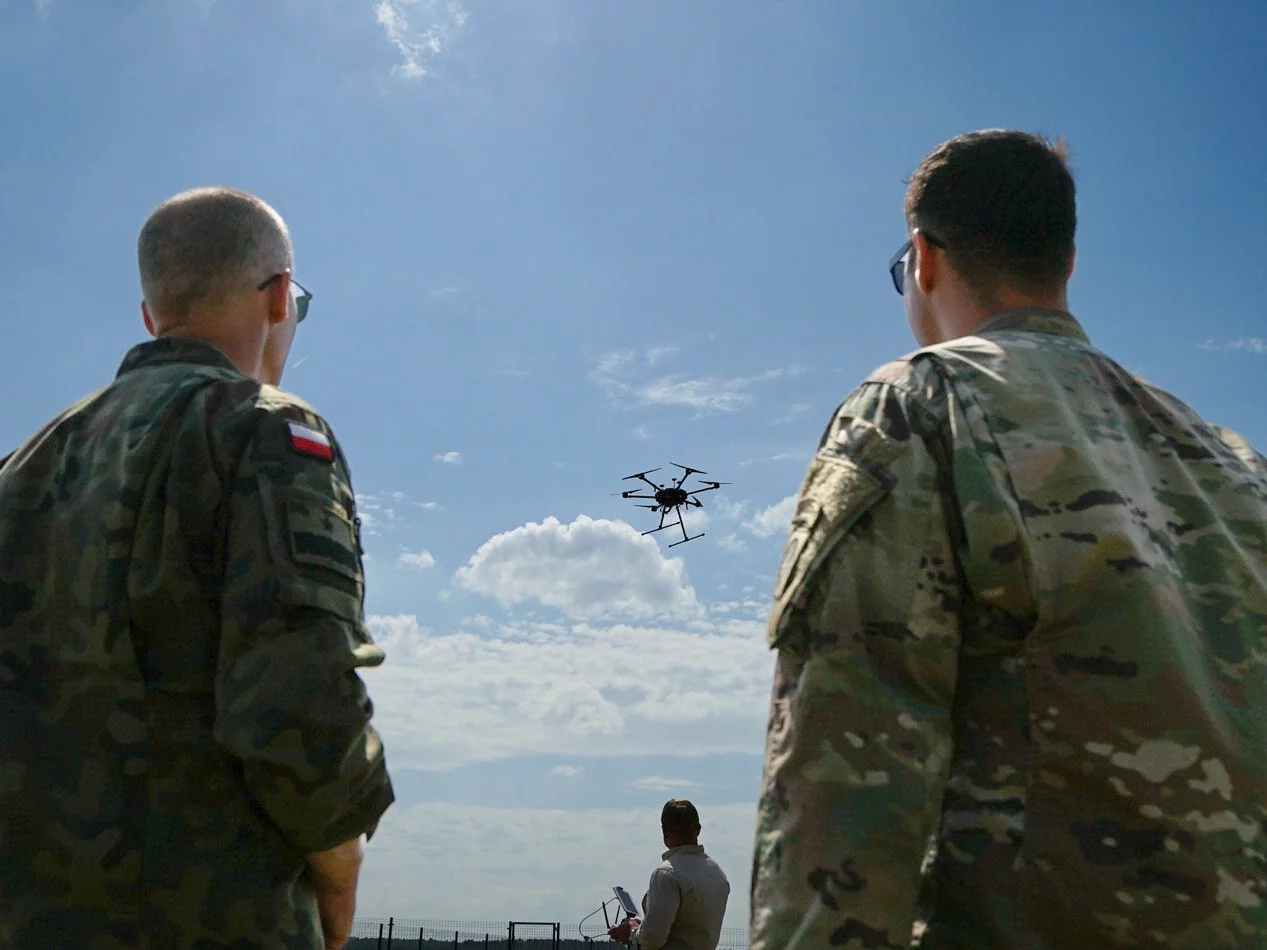The situation of the Ukrainian army with each week is becoming increasingly difficult, and Russian pressures lead not only to further territorial gains but besides to the degradation of the opponent's potential. Limited support from the West does not give prospects for reversing this trend. Ukraine not only does not win this war, but it is more and more clear that its future is in worse and worse colors. However, defeat will should be explained and accused. It will be most convenient to turn against the West and possibly especially against Poland.
Failures
For more than a year now, the Russian army has been constantly carrying out offensive actions in many directions, but a peculiar intensification takes place in the Donetsk Oblast. Last October, with the final collapse of Ukrainian attempts to break the defensive positions of the aggressor in Zaporozh and the exhaustion of the military possible of the attacked state, The Russians themselves began the actions which were caught in the direction of Avdijiwa. Since then, these actions have continued, with the consequence that the Russians captured respective cities, including those mentioned here, as well as Novohrodiwki, Ukrainian, Seldov and Wuhledar. At the moment, 2 more cities – Kurachowe and Wielki Nowosielka – are on the verge of falling. In addition, respective twelve smaller and larger villages fell, and the Russians carried out their actions on a smaller scale, but not without success, besides in another directions.
However, the dimension of territorial losses is only 1 side of Ukrainian failures and problems. The second and much more crucial aspect is the progressive degradation of the Ukrainian army and its potential. It is successfully falling alternatively of growing, as a consequence of individual losses, hardware, and besides limiting western support for actions of many Ukrainian units. The breakdown of the choice brigades over the past 2 years and the limited possible for their reconstruction make the Ukrainian army clearly weaker despite its numerical growth than even 2 years ago.
The failure of experienced and motivated soldiers who lost their lives, suffered wounds or were taken prisoner was to be compensated by expanding their mobilization efforts. However, their effects are far from expected in Kiev. The will to fight from forced recruits is frequently small. The quality of a recruit, which in many cases corresponds to the description of a 40 – 50-year-old with various medical symptoms, remains important. In peace terms, he would be rejected if he wanted to service in the army. The highly hard situation at the front makes the training of recruits as fast as possible, and soldiers arrive at the front under the command of equally inexperienced officers.
The fast expansion of the Ukrainian army revealed a key problem in the form of a deficiency of officer staff. The consequence is problems with command and, above all, coordination between individual battalions coming from different brigades. The consequences are the violent human losses and advancement of the Russians – given the dynamics of actions over the last 2 years, rather fast. Ukrainians are not helped by immense hardware problems and – here on a smaller scale – ammunition problems. The deficiency of dense equipment causes the recently formed brigades to be mechanized only by name. Sometimes they're just infantry units.
Hanging a weapon around the corner?
A series of failed battles in Donbasa increasingly prompts commentators, analysts, and sometimes politicians to think about a possible ceasefire and agreement that will guarantee the end of the battles. The alleged triumph plan, presented by president Zelenski a fewer weeks ago, was a sign of readiness for specified a solution from Kiev. The anticipation of the recovery of all the lost and occupied areas of the state by Russia has ceased to appear declaratively. By reducing all of Kiev's demands, the plan can be brought to an end in exchange for Western guarantees by reinforcing the Ukrainian army and, above all, obtaining formal safety guarantees with a real possible of membership of the North Atlantic Alliance.
The point is that the possible of Ukraine receiving any formal guarantees is not very real. It is all the more improbable that it will become a NATO member. This will be due to both the deficiency of agreement of at least any associate States and besides to the conditions that Moscow will surely set. Russia, beginning an invasion almost 3 years ago, declared that its aim was not only to demilitarize Ukraine. The key was to prevent Kiev from being included in the Western Military Alliance. The Kremlin's goals haven't changed. If any talks were to take place, Russia's prerequisite would be the neutrality of today's opponent.
As has been mentioned, Western support for Ukraine has been increasingly restricted over the past months. The reasons for this were different, including political ones. However, the limited possible of the countries supporting Ukraine was crucial. To put it plainly, much of what might have been given to her has already come to her. NATO reinforcing plants have not importantly intensified production. First, the reserve of russian equipment was exhausted. Later on, Western production weaponry began to hit the front. In turn, further contractual red lines were exceeded in terms of the importance of this support. The West yet reached the wall. Apart from maintaining the functioning of the Ukrainian army, she cannot offer much more. This causes a scale of war and loss.
Paradoxically certain hope for Kiev became Donald Trump's triumph – in this dimension it was assumed that it could not be worse anyway. The IV that kept Ukraine alive in Biden's time was not the solution. It was so assumed that the firm Trump negotiations to force Russia to make concessions would supply greater support to Ukraine. Even if there is simply a political will to hand over most of its own stock, it will not solve the basic problem, which is the already mentioned staff issues. Moreover, almost all levels of this support ladder have already been gradually exceeded. The last chord was the consent to usage western missiles to kill targets in Russia. The possibilities left for Trump are very limited.
Who is guilty of losing?
The war will end either way. The chances of this happening in 2025 are not importantly greater than that the war would proceed for months to come. In fact, erstwhile the war stops, Moscow will decide first of all. However, this will not be a complete triumph and will not force Ukraine to surrender unconditionally. There will be negotiations, conditions and circumstantial demands. 1 of them will be territorial empires for Russia. Another anticipation of the Kremlin may be the condition of Kiev's mentioned neutrality and resignation or postponement during his western aspirations. Regardless of the fact that Moscow's first plans were much wider, it will inactive present the end of the war as its success and will point out that it actually defeated the West. This will not be peculiarly far from the truth. Due to its position Ukraine will be forced to make concessions. There will be a request to "give" to the attacker part of the territory that has been lost as a consequence of war. Attempts to “be part of the West” will most likely be blocked. There will so be no NATO membership, and accession to the EU will be a large question mark.
For more than 2 years the Ukrainian message was unchanged. The war can be won, Russia can be beaten and the lost areas can be recovered. Prior to the offensive in Zaporozh last summer, there were even expectations of regaining Crimea and ending the war through success on the battlefield. The chances of this effect are zero at this point. The negotiations remained, then. Kiev kept force on Western states to intensify military aid throughout the war. There were further demands and expectations regarding the transfer of arms of a circumstantial type. From the russian weapons we went to western tanks, aircraft and missiles of various types. In practice, all expectations have been met. The thing is, they have always been late for needs and opportunities to accomplish real changes after appearing on the front. Each time the aid was limited in time and number. There have besides been any circumstantial warnings on its usage by the arms transfer countries.
Of course, 1 can take a point of view, in which the West was not guilty of anything and took action to support Kiev, as it was in his interest to halt the increase in the importance of Russia and the emergence of its troops on a longer long of the border of the alleged east flank of NATO. The West – mainly the United States – never had the same goals as Kiev. erstwhile Ukraine expected full triumph and recovery of the full lost area, including Crimea, supporting states (or most of them excluding those in which the message was dominated by wishful and romanticist thinking) only expected restrictions on Russian progress, Russia's tasks as large losses as possible and its maximum weakening in the military and economical field. These targets were never identical. However, it is hard to find whether people in Kiev were aware of this.
Let us return here to the alleged triumph plan. The presentation itself and the content indicate Kiev's willingness to compromise and negotiate. It is besides important, however, that in practice the program's points are a clever run to explain the deficiency of victory. They all take concrete action from Western countries, mainly the United States, and the possible of their implementation is highly low. Due to the deficiency of implementation of the plan, there will be a request for greater concessions and the Ukrainian public to admit that the war will not end as expected. But who should be blamed for defeat? The easiest thing to do is to hold the West responsible.
“The Betrayer” of the West
Exhaustion of Western arms support possible Ukraine buried her efforts to regain the initiative. The deficiency of political will to strengthen national arms industries has led to the anticipation of further supporting the fight not being restored. However, failure will not become an orphan, and it will be easy to blame the West for not doing enough. partially true, due to the fact that in a political sense he didn't want to do any more. However, on the another hand, he did not have to, as Ukraine had no binding agreements with him. 1 of the countries that first started extended support for Ukraine was Poland. She gave up any weapon very quickly, then for many months she was in the world's top position, crossing the unwritten boundaries and passing to her neighbour the russian tanks, combat infantry wagons, anti-aircraft and artillery systems, and helicopters and aircraft. Warsaw then created force to hand over dense Western production weapons to the affected state. She was besides in the first number of countries that directed this aid to Ukraine. Problem is, whoever starts, sometimes ends first. Our possible for further assistance Ukraine is exhausted. This was not the case with respect to countries that waited or spread over time. Germany is an example. They skillfully led the game with Kiev creating the impression that they stood by his side. No 1 remembers present that for the first months after the Russian invasion Berlin stopped and restricted aid, and the determinants of this were the celebrated German helmets proposed at the time erstwhile dense equipment was already coming from Poland to Ukraine.
Whether the individual countries have exhausted their full possible or the “only” part of it, as a result, Kiev cannot number on broad support anymore. This, with the deficiency of implementation of the alleged triumph plan, will make her willing to prosecute the West for deficiency of support, assistance and broader commitment, which paved the way for Russia to succeed. Any mistakes of its own which have had a tangible impact on the situation on the front, specified as the deficiency of defence lines, problems with mobilisation, quality of command and the readiness of society to fight further, will be omitted here.
Poland may be the first victim of accusations of failure from all Western countries. Firstly, due to the fact that she was 1 of the first to exhaust her possible and can so be accused of doing nothing erstwhile another countries continued to – in a limited way, but nevertheless – proceed to support Ukraine. Secondly, in view of all another conflicts that have occurred over fresh years – in the historical field (genocide in Volyn), on the economical issue (customs, border blockade, agricultural dispute) or on the political line (declarative opposition of the current Polish government to Ukraine's membership of the EU until the dispute surrounding the Volyn genocide is resolved).
It will be easier to “sell” to the public – civilians and military – the request for concessions if the causes are presented in advance. This may be due to a deficiency of Western aid, a deficiency of compliance with alleged obligations, which together can give a image of betrayal. Poland as a state that was already conflicted with Ukraine and which the Ukrainian president accused of acting in favour of Russia (let us callback the words "help prepare the scene for the Moscow actor") will be the easiest mark to attack. Therefore, the future position of our country will depend primarily on whether the Polish authorities in the individual of the President, Prime Minister and Minister of abroad Affairs will be able to make an effort to strengthen their own subjectivity. However, hope in this respect is alternatively impenetrable.
Michał Nowak











